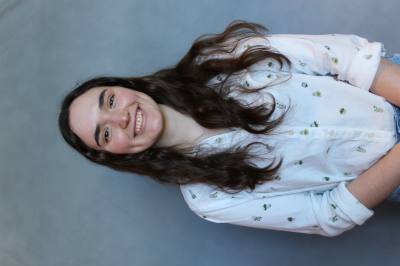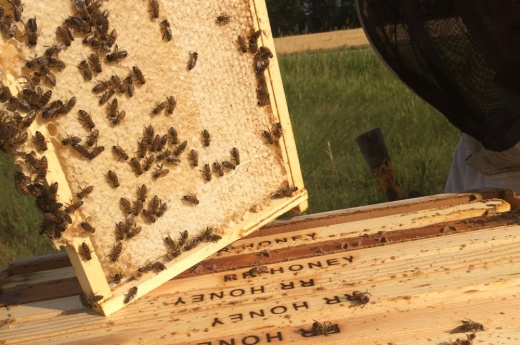After two years of making sure Austin met the nonprofit's requirements and initiative from organizations such as The University of Texas’s Beevo Beekeeping Society, the city joins over 200 others, including the nearby cities of Bee Cave and Buda, in protecting the pollinators and providing habitats for the insects.
“With pollinator populations declining as a result of habitat loss, pesticide use and climate change, this designation not only supports conservation, it raises awareness to the urgency of protecting the species which keep our ecosystems intact,” City Council Member Vanessa Fuentes said in a press release.
The goal for Austin is to provide native habitats and protect pollinators on both private and public land, according to the release.
Konrad Bouffard, Round Rock Honey founder and owner, said his company started in Austin before moving to Round Rock. The city of Austin was supportive in his efforts to educate the community.
“[Austin has] a long history of supporting all kinds of environmental initiatives. For example, whenever we started our beekeeping class, the city of Austin allowed us to get it up and running at the Austin Nature Center,” Bouffard said.
Beyond those in the government, the Austin community was a vital part of getting the city affiliated with this nonprofit, especially the Bevo Beekeeping Society.
“That enthusiasm is really priceless. ... I think it's also a level of optimism when the public says we want to be a Bee City or a bee campus affiliate, they're saying they want to dream big for their community. They want to help the community be the best,” said Laura Rost, Bee City USA and Bee Campus USA coordinator.
Rost said when residents talks to their elected officials about what they want, and when initiatives like this have grassroots strength, it allows for program such as Bee City USA to thrive.
With approval from council, the program's goal is "for Austin is to protect and provide healthy native habitats to pollinators on public and private lands.”
“I think that any kind of attention that can be brought to sustaining and encouraging environmental responsibility, planting native plants that are good for pollinators, or at least not cutting back on the existing ones ... [is] very positive,” Bouffard said.
As a part of the Bee City USA program, Austin must stick to the list of requirements given that upholds the city on their promise to create habitats for pollinators, educate the public and reduce the amount of pesticides used.
“We try to keep things open ended so towns and campuses can really make the program their own playing to their own strengths, but they report to us about what work they've done,” Rost said.
For Austin, its efforts to educate have already started. On March 5, Pollinate Austin installed bee and bat gardens at the Austin Nature Center that included an educational speaker. This was a part of a spring series that will focus on community activities about pollinators.
Council Member Leslie Pool stressed the importance of the responsibility to take care of every aspect of the local wildlife.
“Being a Bee City will help educate our community that pollinators are essential to a healthy ecology and frankly, to our survival,” she said.
Kaitlyn Wilkes is a reporting fellow for a Community Impact Newspaper and The University of Texas at Austin partnership with a focus on our growing and diverse neighborhoods. The project is supported by the School of Journalism and Media’s Dallas Morning News Innovation Endowment.





